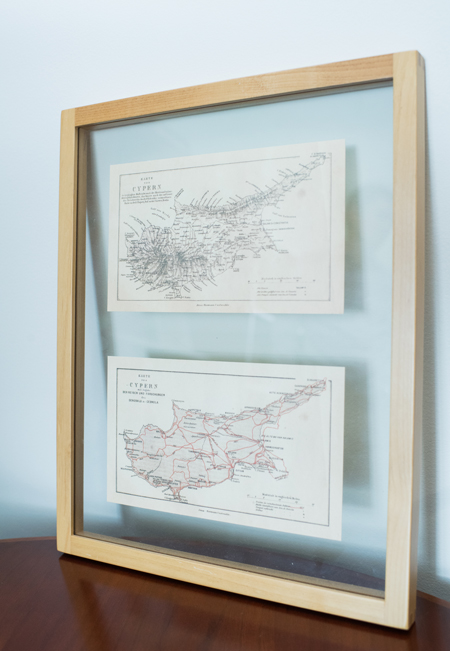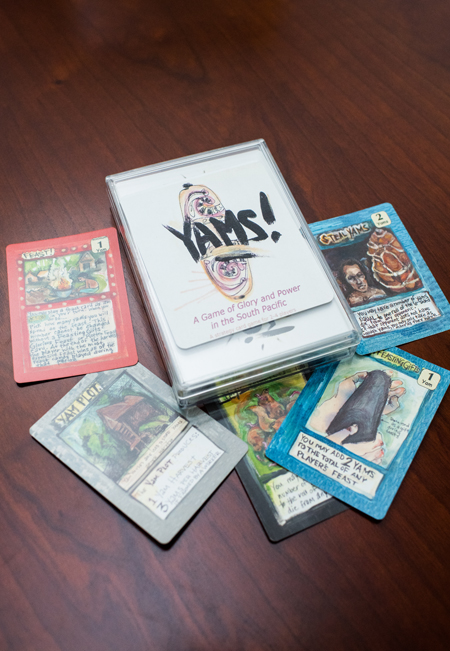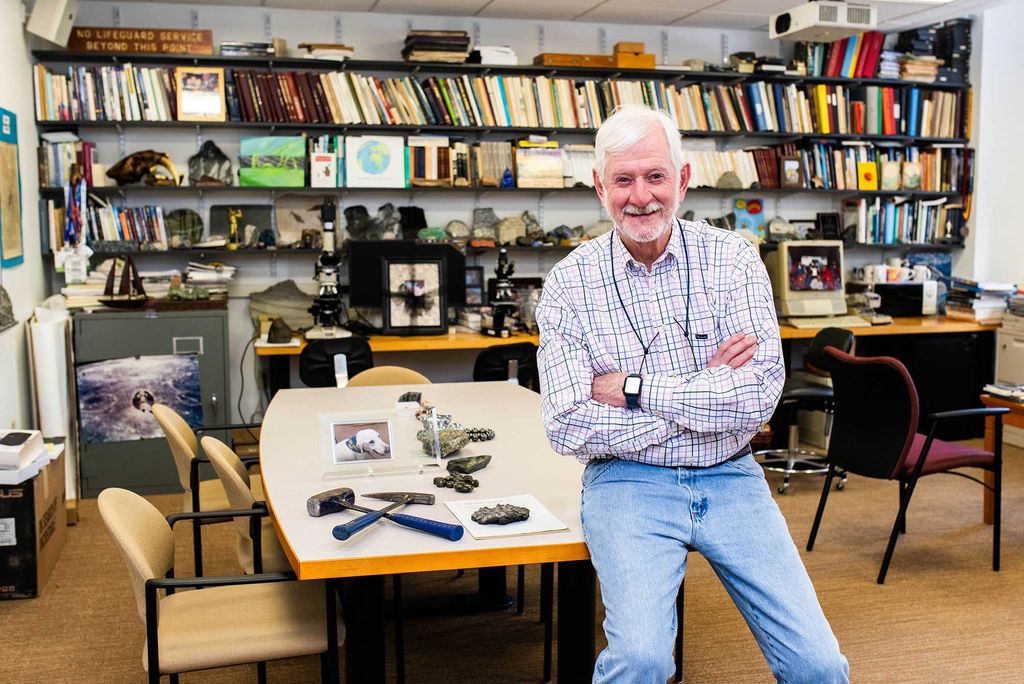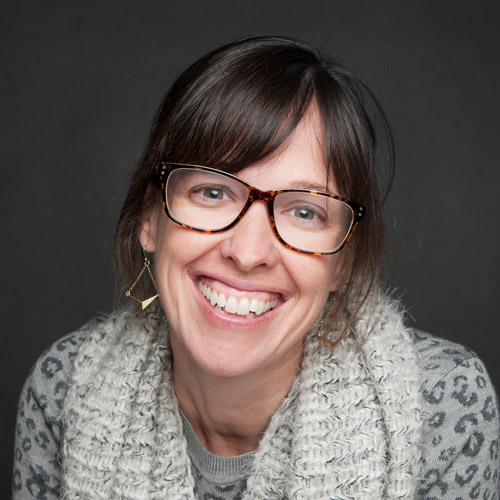Office Artifacts: John Marston
CAS assistant archaeology prof studies plants to look for climate change clues
In his course Eating and Drinking in the Ancient World (which he will teach again in spring 2019), John Marston introduces students to what our ancestors ate a very long time ago. Last semester, the College of Arts & Sciences assistant professor of archaeology and anthropology obtained grain used in ancient times and baked bread to give students a firsthand taste of a type of wheat that was domesticated 10,000 years ago.
When a colleague gifted him with an “interesting” mezcal from Mexico, he gave his students, emphasizing, “if they were of age,” a “very, very small taste in Dixie cups”—he points to a stack of the tiny cups stockpiled precariously in the corner of his office. The distilled alcoholic beverage is derived from the agave plant, which was one of the most sacred plants in pre-Spanish Mexico.
Most of Marston’s research focuses on the Middle East and the Mediterranean, and his office is a hodgepodge of gifts students and colleagues have given him. A canteen made out of a gourd and a corncob came from a student who’d been to Mexico.
A 2013 Peter Paul Career Development Professor, Marston studies plant remains. He says he has always been interested in environmental science, plants, and history, but wasn’t sure how to combine the three. As a Washington University undergrad, he had a eureka moment when he took a course that involved studying plant remains on archaeological sites: “Oh my god, it’s everything that I’m interested in, all at the same time,” he recalls thinking.
“The reason I look at different seeds is to look at ancient agriculture,” he says. “One of the questions I’m interested in is how do people decide which kind of plants to grow in order to minimize the risk that it will be a drought year, or hail, where it will destroy their entire crop. This has implications in the modern world, and that’s one of the connections I work on.”
In our series “Office Artifacts,” BU Today highlights interesting artifacts professors and staff display in their office. Have a suggestion about someone we should profile? Email amlaskow@bu.edu.
This Series
Also in
Office Artifacts
-
January 22, 2024
Office Artifacts: Angela Onwuachi-Willig
-
February 6, 2023
Office Artifacts: Gustavo Mostoslavsky
-
October 25, 2022
Office Artifacts: Nancy Lowenstein









Comments & Discussion
Boston University moderates comments to facilitate an informed, substantive, civil conversation. Abusive, profane, self-promotional, misleading, incoherent or off-topic comments will be rejected. Moderators are staffed during regular business hours (EST) and can only accept comments written in English. Statistics or facts must include a citation or a link to the citation.